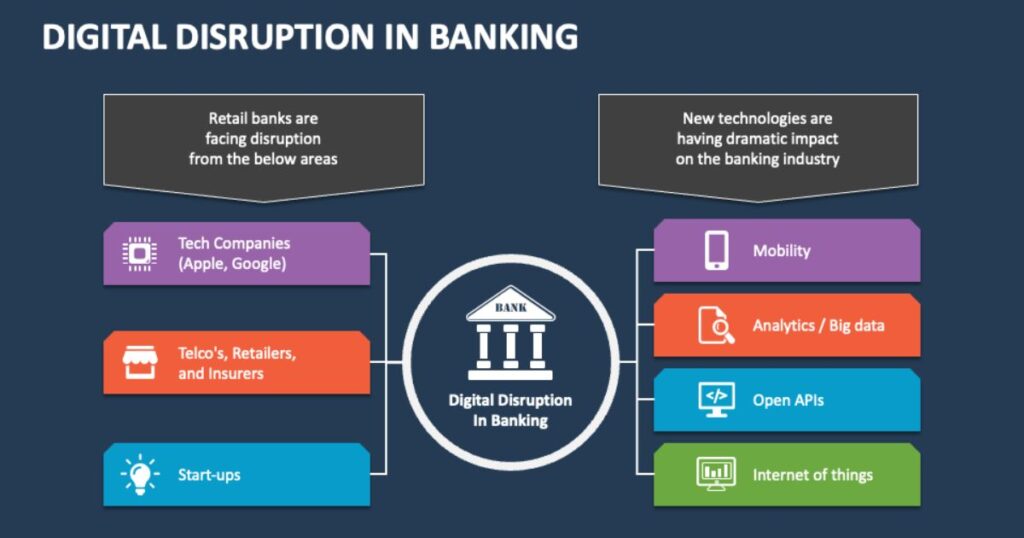Thailand emerged as a digital powerhouse in Southeast Asia. The “Land of Smiles” transformed in recent years. It’s rapidly embracing cutting-edge technology. Smart city innovations boomed. E-commerce and fintech sectors are thriving too. These advancements revolutionize businesses and daily life in Thailand. This blog post explores the latest digital trends. Thailand establishes itself as an emerging tech hub. The trends may surprise you. You’ll discover transformative technologies taking hold in Thailand.
Thai companies and consumers rapidly adopt new technologies. Smart traffic systems streamline Bangkok’s roads. Digital banking solutions displace traditional institutions. Thailand undergoes digital transformation. Initiatives like Thailand 4.0 drive this transformation. It paved the way for an explosion of startups. Investments and advancements occurred across sectors. Thailand experiences digital disruption. This vibrant Southeast Asian nation undergoes massive changes. Let’s explore the digital disruption in detail. We’ll dive into the cutting-edge trends transforming Thailand.
Bangkok’s Smart City Metamorphosis
Thailand is the most prominent example of this. Embracing new digital technologies is the evolution of Bangkok’s smart city. The Thai capital is facing urban challenges such as. Implementing a series of smart solutions to tackle traffic congestion, public safety and environmental issues.
Bangkok has installed an AI-powered traffic management system. Which analyzes data from CCTV cameras and sensors to improve signal times and suggest alternative routes during gridlock. According to the Bangkok Metropolitan Administration. The system has already reduced travel times by 15% in pilot areas.
Chulalongkorn University data analyst, Somchai Rattanasuwan said. “Smart traffic system is a game changer”. By analyzing real-time data on traffic patterns. It dynamically adjusts signals to meet demand and reduce congestion across the city.
But Bangkok is not alone. Other major Thai cities such as Phuket, Chiang Mai. Khon Kaen is embracing the Internet of Things (IoT) by deploying networks of sensors to monitor air quality, water levels, energy use, and public utilities. This treasure trove of data on the performance of civic services to local governments. Helps identify and solve urban problems while improving sustainability.
Case Study: Phuket Smart City
The resort island of Phuket has emerged as one of Thailand’s smart city pioneers. Through a partnership with Huawei, Phuket has implemented an integrated smart city operating center that collects and analyzes data from over 300 IoT sensor points.
This data powers applications that help:
- Monitor traffic flow and adjust signals in real-time
- Detect flooding and activate drainage pumps automatically
- Optimize waste collection routes for efficiency
- Identify public safety/crime incidents and dispatch emergency services rapidly
Within the first year, Phuket’s smart city system delivered measurable benefits including:
- 20% increase in emergency response times
- 25% reduction in energy usage by city infrastructure
- 35% decline in traffic congestion during peak periods
By leveraging IoT, big data, and intelligent automation. Phuket is boosting liveability for residents while managing growth in a more sustainable manner. The success of Phuket’s initiative has spurred over 20 other Thai cities to follow suit.
The Meteoric Rise of Thai E-Commerce

Perhaps no sector exemplifies Thailand’s digital awakening more than e-commerce. The country’s e-commerce market value soared to over $16 billion in 2022. Growing a staggering 30% year-over-year.
Major regional players like Shopee and Lazada are battling for dominance against global giants like Amazon. Shopee’s localized Thai app, partnerships with influencers like Jaylerwise. Heavy marketing blitzes have allowed it to rapidly gain market share.
But homegrown startups like Zelingo also offer innovative business models to Thailand’s 51 million digital shoppers. Together with services tailored for the local market are making waves.
Said Ankiti Bose, co-founder and CEO of Zelingo. “The Thai e-commerce market has grown rapidly. Mobile adoption has increased during the COVID-19 pandemic.” “We are seeing a rapid shift in consumer behavior towards online shopping in fashion, beauty, lifestyle and more.”
This boom has spurred digital transformation among traditional retailers as well. Major Thai mall operators like Central Group. The Mall Group has rapidly expanded omnichannel offerings, tightly integrating e-commerce with physical retail experiences.
Central Group – Thriving in the Digital Age
Established in 1949, Central Group operates over 30 malls, hotels, and retail stores across Thailand. To adapt to modern shopping behavior, Central launched:
- Online stores and mobile apps for all retail brands
- Centralized logistics to enable same-day delivery
- Integrated loyalty programs across online/offline
- AI-powered personalized product recommendations
- Unmanned stores and self-checkout experiences
These digital initiatives paid major dividends. Central’s e-commerce revenue soared 82% year-over-year in 2022. The company’s digital transformation allowed it to thrive by blending online with its extensive physical footprint.
The Kingdom’s lucrative e-commerce pie continues to attract investment, innovation. Tough competition from players aspiring to become the “Amazon of Thailand”.
Digital Disruption in Thailand’s Banking Sector

While e-commerce is in the headlines. The financial services sector is going through its own quiet fintech revolution. A new generation of digital-first startups and challenger banks, mobile-first. Replacing incumbents with user-friendly banking solutions.
Leading fintech apps such as TrueMoney Wallet, Pi Pay, and Rabbit LINE Pay enable seamless mobile payments. It has gained millions of users by offering instant transferable cash top-ups, and other services. As legacy banks are slow to cater to the unbanked and underbanked populations.
Thailand’s mobile banking revolution is well underway, bringing financial inclusion to millions.
Meanwhile, crypto is also gaining mainstream adoption in Thailand. Among the top 10 countries in the world for crypto trading volume in 2022. Banks like SCB.
Legacy banks that fail to adapt to digital services and the changing needs of consumers. They face an existential crisis due to disruption by fintechs. Financial analyst Kalapat Sridi Chakingrak warned. “Challenger banks are raising the bar for speed, convenience and customer experience at a fraction of the cost structure.”
In fact, Thailand’s regulators created regulatory sandboxes, digital banking licenses. It has taken a progressive stance to facilitate this fintech transformation through forward-thinking initiatives such as the Payment Systems Act to regulate mobile payments and e-money.
By the Numbers: Thailand’s Digital Banking Boom
- 39% of Thais used digital banking apps in 2022, up 27% from 2021
- Mobile payments value in Thailand hit $18.7 billion in 2022
- Digital lending by Thai fintechs grew over 150% year-over-year
- Thai digital banks like Izam and GTB rapidly acquired over 1 million customers
Fintech is clearly disrupting Thailand’s banking status quo by offering consumers. SME-friendly digital banking solutions that are easier to access, cheaper. Better meeting evolving needs.
Other Emerging Digital Trends in Thailand
Beyond e-commerce and fintech. Thailand is seeing growth in several other important tech sectors. Which are fueling the country’s digital economy:
- 5G Rollout:
Major Thai telecom firms like AIS. True and DTAC are rapidly deploying 5G networks to drive adoption of next-gen mobile services. Innovations like IoT/smart cities, and support the data demands of digital businesses.
- AI & Automation Adoption:
Both Public and Private Sector Organizations in Thailand to Enhance Efficiency. Artificial intelligence and robotic process automation technologies are increasingly being leveraged to enhance services. AI is being applied in areas as diverse as manufacturing, healthcare, education and agriculture..
- Digital Media & Streaming:
Streaming platforms like Netflix, Disney+, and local services like WeTV, VIU. Monoplay HD is booming in Thailand as consumption of digital content rises rapidly. Thai streamers are tapping into diverse viewer demand for Korean dramas, anime, sports and local Thai productions.
- Last-Mile Delivery Boom:
On-demand logistics and delivery startups like Flash Express, Lalamove, Skooclub. Hungry Hub has seen explosive growth, catering to the surge in e-commerce orders, food delivery. Courier services driven by Thailand’s digital economy.
Thriving Thai Tech Startup Ecosystem

Thailand’s rapid digital transformation has catalyzed the emergence of a thriving technology startup ecosystem, fueled by robust funding, government support programs, corporate incubators/accelerators, and prowess in emerging technologies.
Read more : Unveiling the Secrets of r/Genshin Leaks: A Comprehensive Guide to the Latest Discoveries
Conclusion
There’s no denying it – Thailand’s digital technology sector is booming. From pioneering smart city initiatives and an e-commerce juggernaut to a thriving fintech landscape. Flourishing startup ecosystem, this once largely analog nation has wholeheartedly embraced the digital age.
As shown above, Thailand’s rapid digital transformation is touching every major sector of its economy. With strong government support through programs such as Thailand 4.0. A vibrant startup community that attracts investor interest. Fueled by consumer appetite for tech, the Kingdom is cementing its position as a rising force in Southeast Asian innovation, technology.
For companies looking to tap into this rise and Thailand’s increasingly tech-savvy consumer market, the opportunities are immense. The time to dive into the Thai market and ride this digital disruption wave is now before it fully crests. Keep your eye on the Land of Smiles – Thailand’s dynamic digital future is just beginning to take shape.
FAQ’s
What is Thailand’s plan for a digital government?
The Thailand Digital Government Plan has an objective. It aims to digitalize government agencies strategically. The plan works to deliver citizen-centric services. These services must be of high efficiency. The services must also have transparency. Digitalizing agencies is the core goal. Providing excellent citizen services is essential too. Short sentences make this easier to understand.
What is the Thailand 4.0 digital economy plan?
Thailand set targets for its digital economy. One target is increasing the digital economy to 50% by 2030. The transformation has specific policies. “Thailand 4.0” policy focuses on this transformation. Another policy is “A National Digital Blueprint.” It also emphasizes digital industrial-scale change. Developing the digital economy is a core goal. The policies drive Thailand’s digital economic shift. Short impactful sentences explain the plan clearly.
Why is Thailand so famous?
Thailand is famous for its natural sights. Its beaches and islands are stunning. Thailand has almost 1,000 islands. It has 2,400 km of beautiful coastline. The beaches offer many experiences. You can go diving there. There is nightlife and parties. The beaches provide romantic getaways too. Thailand’s islands and beaches attract visitors worldwide. The spectacular natural scenery makes it famous.
What is Thailand’s main religion?
Buddhism. 92%+ Buddhist. Islam 2nd at 5.4%. Christianity 3rd at 1.2%. Muslims concentrated in the south.
